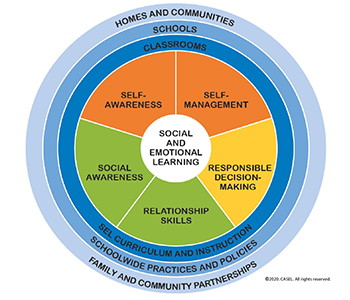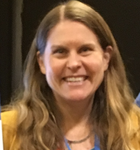Using Citizen Science to Support Social and Emotional Learning Needs During Covid-19 to Engage Students and Caregivers
By Peggy Harte M.Ed.
As teachers, students and caregivers transition from in-person instruction to distance learning, hybrid learning, or a blend of both, many are struggling with how to develop a classroom culture that engages and inspires students as they develop an emotional connection, all while attending to both their academic needs as well as social and emotional needs. With limited time in person (or virtually), many teachers are looking for ways to connect with students and make space for students to collaborate with one another. One possible answer - engage students of all ages in authentic, real world participatory science.
Youth-focused community and citizen science (YCCS) involves young people directly in the scientific production of knowledge. In YCCS, young people contribute to professional research, influence management and policy, and impact environmental conservation in their communities. Youth-focused community and citizen science (YCCS) engages students in real world authentic investigations while deepening their content knowledge and skills as well as increasing their capacity to tackle environmental and community problems. In addition to engagement with content standards, YCCS projects can also be used to make space for attending to the Social and Emotional Learning (SEL) of students.

According to the Collaborative For Academic, Social and Emotional Learning (CASEL) “Social and emotional learning (SEL) enhances students’ capacity to integrate skills, attitudes, and behaviors to deal effectively and ethically with daily tasks and challenges.”
YCCS projects can allow for lesson design that connects to content standards, makes space for collaboration and connection, and focuses on the SEL of students. When looked at YCCS projects through a Universal Design for Learning (UDL) lens, we see that inquiry based projects that connect to authentic science allows for multiple means of engagement with content, as well as representation of student learning.
By engaging in a YCCS project whereby students are able to make observations from their own home or nearby outdoor space, they are able to begin observing the interconnectedness of their environment, connecting those observations to a CCS project, and comparing their observations with one another.
From CASEL: The Collaborative for Academic, Social, and Emotional Learning (CASEL) is a trusted source for knowledge about high-quality, evidence-based social and emotional learning (SEL). CASEL supports educators and policy leaders and enhances the experiences and outcomes for all PreK-12 students. Their framework is based on years of research working with students and educators on developing SEL competencies.
The YCCS Framework is a research-based framework intended to help educators facilitate community and citizen science (CCS) activities in ways that support youth learning. CCS activities alone won’t necessarily promote meaningful science learning. Our case study research identified several Key Youth Practices which, when supported by Key Educator Practices, can create opportunities for consequential youth learning. More detail is available at yccs.ucdavis.edu.
| Core Competence From the CASEL Framework |
From the CASEL Framework | From the YCCS Framework |
|
Self-awareness |
-Identifying emotions -Accurate self-perception -Recognizing strengths -Self-confidence -Self-efficacy |
Core Activity: Develop expertise- Develop youth interest and gain proficiency with data collection |
|
Self-management |
-Impulse control Stress management -Self-discipline -Self-motivation -Goal-setting -Organiza-tional skills |
Key Youth Practice: Take ownership of data quality- Young people take responsibility for ensuring high quality CCS data collection and analysis |
|
Social Awareness |
-Perspec-tive-taking Empathy -Apprec-iating diversity -Respect for others |
Key Youth Practice: Engage with complex social ecological systems- Youth think about the interactions between humans and nature and consider the role they and their communities play. |
|
Relationship Skills |
-Communi-cation -Social engagement -Relation-ship- building -Teamwork |
By engaging in a YCCS project, students are able to: |
|
Responsible Decision Making |
-Identifying problems -Analyzing situations -Solving problems -Evaluating -Reflecting -Ethical responsibility |
Youth Learning: Use citizen science experience to make changes in your life or community- Youth take actions—big or small—with environmental science to create personal and community change. |
For more information on ways to support distance learning engagement, or to read about project ideas, visit https://education.ucdavis.edu/yccs-home

Margaret (Peggy) Harte, M.Ed.
Education Program Manager, UC Davis Center for Community and Citizen Science
Program Manager-Environmental Literacy and Instruction, Solano County Office of Education
A former classroom teacher and elementary science specialist with over 20 years of teaching experience, Peggy supports educators by designing and developing professional learning opportunities focusing on environmental literacy and citizen science. As the Education Program Manager at the Center for Community and Citizen Science at the UC Davis School of Education, Peggy co-collaborates in research looking at how citizen science projects engage students in deepening their connection to the environment, their engagement with the EP&Cs, and the application of NGSS and Common Core State Standards as they develop environmental science agency. She is also currently supporting educators (both formal and informal) as the ELI program manager at the Solano County Office of Education.





